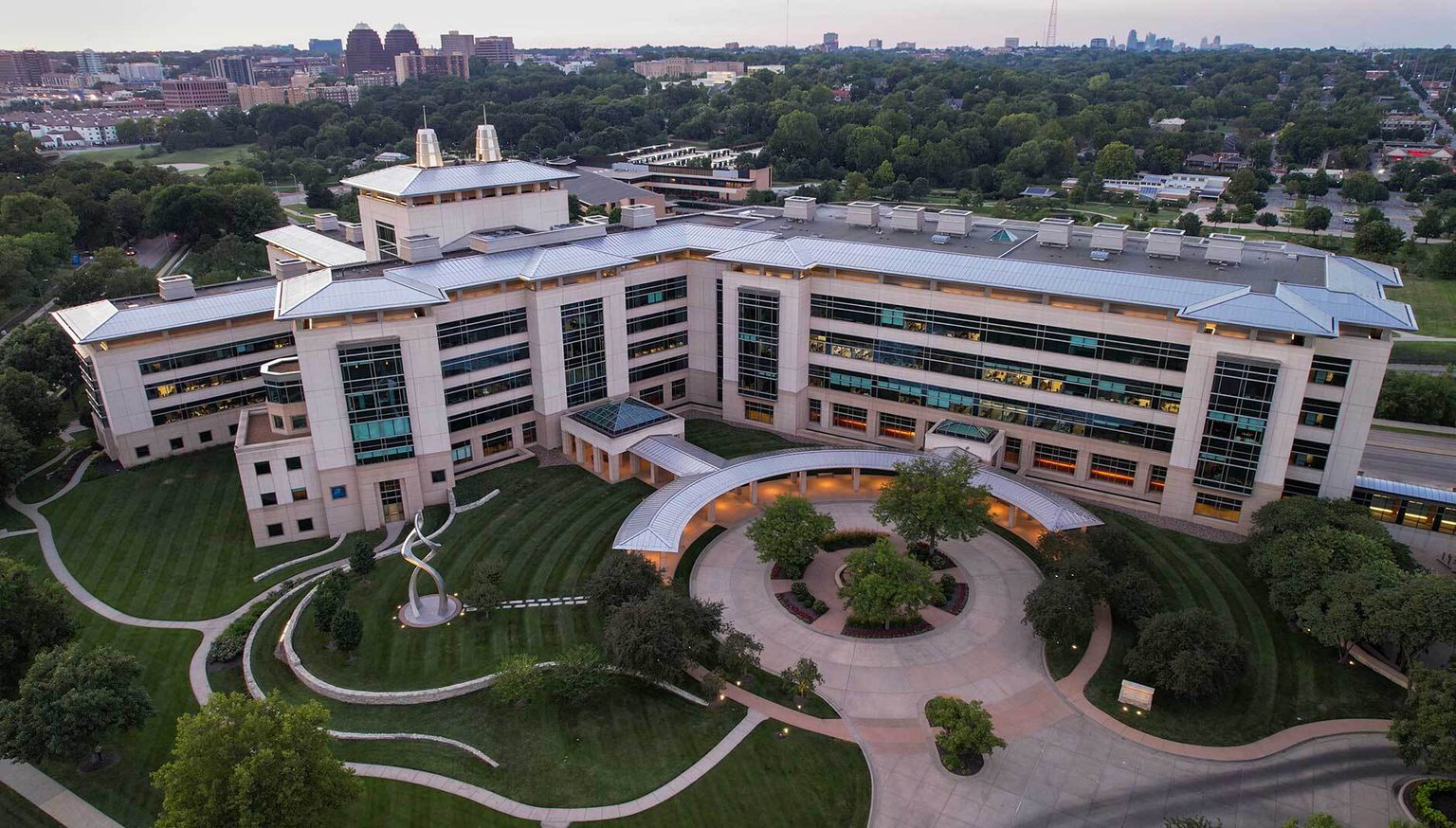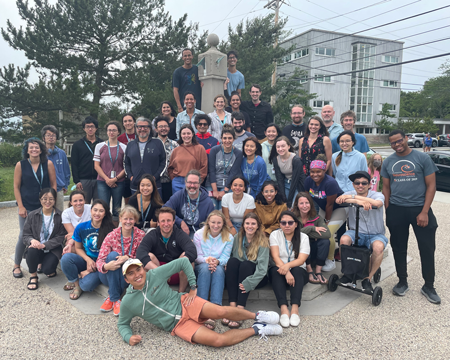News

18 December 2025
2025 in Review
Eleven key moments and achievements from the Stowers Graduate School in 2025
Read Article
The Graduate School of the Stowers Institute for Medical Research
News
Virtual conferences and workshops help predocs gain critical knowledge, skills, and connections

Viraj Doddihal at MBL Embryology course
Two years ago, it was not uncommon for predoctoral researchers from the Graduate School of the Stowers Institute to travel to meetings and conferences all around the world. In fact, a travel allowance is a staple of our program’s benefits, often with additional meetings paid for by the predoc’s thesis lab.
But as COVID-19 became more prevalent in early 2020, travel slowed, then stopped altogether. Fortunately, it did not take long for scientists to find new and creative ways to fill the gap, and virtual conferences via Zoom and other services became the norm. According to Dean of the Graduate School Matt Gibson, PhD, these online offerings have been key to offsetting the lack of in-person meetings.

Ruohan Zhong at MBL Neurobiology course
“The dissemination of knowledge is an absolutely central part of our mission as scientists, and scientific conferences are a crucial way for students to learn about the latest developments in the field and to get a handle on new and emerging technologies,” Gibson says. “Further, there are great benefits to knowing your colleagues and interacting regularly as a way of getting critical feedback, new ideas and inspiration for future experiments.”
Though there are aspects of in-person meetings that the predocs say they miss, such as the chance to wander through poster sessions, there are still plenty of benefits to be had from the virtual alternatives. Investigator Paul Trainor, PhD, had two predocs from his lab attend a virtual workshop and believes the goals for meetings and workshops remain the same regardless of whether they’re virtual or in person.
“It’s important for predocs to stay up to date with the latest technical developments in the field, to learn new skills that they can apply to their own projects, to develop connections with leaders in the field, establish collaborations, begin to build their professional peer and mentoring networks, and perhaps most importantly present their work and receive community feedback,” Trainor says.
Like Trainor, Predoc José Fabricio López Hernández sees the value in maintaining meeting attendance and has attended three virtual meetings so far in 2021, including presenting a talk at the Cold Spring Harbor Laboratory Biology of Genomes meeting. Meetings are an opportunity to observe and interact with the people in your field, he says, whether they are current colleagues or potential collaborators.
“I think people need to see your face and interact with you to get a better sense of who you are,” says López Hernández. “Attending the meetings, asking questions, and talking about my research helped me feel like I did attend the conference.”
Some benefits of online meetings are hard to miss. Trainor points out that the biggest upside is that you can attend no matter where the meeting is hosted, reducing costs as well as creating more opportunities for predocs to learn.
“Not only can more trainees from a lab attend the same virtual meeting, which would be cost prohibitive if held in person,” Trainor says, “but the trainees can also attend more virtual meetings, conferences and workshops to expand the breadth and diversity of their training and knowledge.”
Predoc Viraj Doddihal has attended three conferences this year as well. He eliminated travel time and saved money with two online offerings but was also one of two predocs who attended an in-person course this summer. Both Doddihal and Ruohan Zhong attended six-week courses at the Marine Biology Laboratory in Woods Hole, Massachusetts. Doddihal was scheduled to attend the Embryology course last year, but it was cancelled due to the pandemic. He was excited to be part of it this year.
“The Embryology course involves an intensive lab component which provides an excellent opportunity to get our hands on a diverse set of research organisms,” he says. “Given that the lab is one of the main attractions of the course, I wanted to attend in-person. I was able to get vaccinated before the start of the course which also took away a lot of stress with traveling to a different place amidst the pandemic.”
Zhong is a predoc in the Gibson Lab, and thanks to vaccinations and stringent COVID precautions at MBL, Gibson believed the in-person neurobiology course was an excellent opportunity for Zhong to get exposure to a great diversity of topics and techniques in neurobiology beyond the scope of what she could learn in the lab.
It was important to attend the course to learn those hands-on techniques from experts in the field, says Zhong, pointing out that practicing hands-on skills isn’t really possible in a virtual environment. She also appreciated connecting with peers with similar interests and learning from a “fantastic group of faculty and TAs.”
It is encouraging to see the return of some in-person meetings, but it is unlikely the virtual format will go away anytime soon. Regardless of the format, the predocs will continue to attend and reap as many benefits as they can.
“At meetings I get to see what is new,” says Doddihal. “I get to see new techniques which I can possibly adapt, or which provides a different context to my work which helps expand the perspectives of my work. Courses like the embryology course also let me to explore different biological problems and research organisms. This is all very helpful as I think about the next stages of my career.”
News

18 December 2025
Eleven key moments and achievements from the Stowers Graduate School in 2025
Read Article
News
24 November 2025
Students working with Pillai can look forward to studying deep evolutionary biology paired with advanced protein biochemistry and artificial intelligence to investigate and explore these questions.
Read Article
News
19 November 2025
Sankari believes the Stowers Graduate School is a place for emerging scientists to pursue their passions, contribute to discoveries, and achieve success.
Read Article
